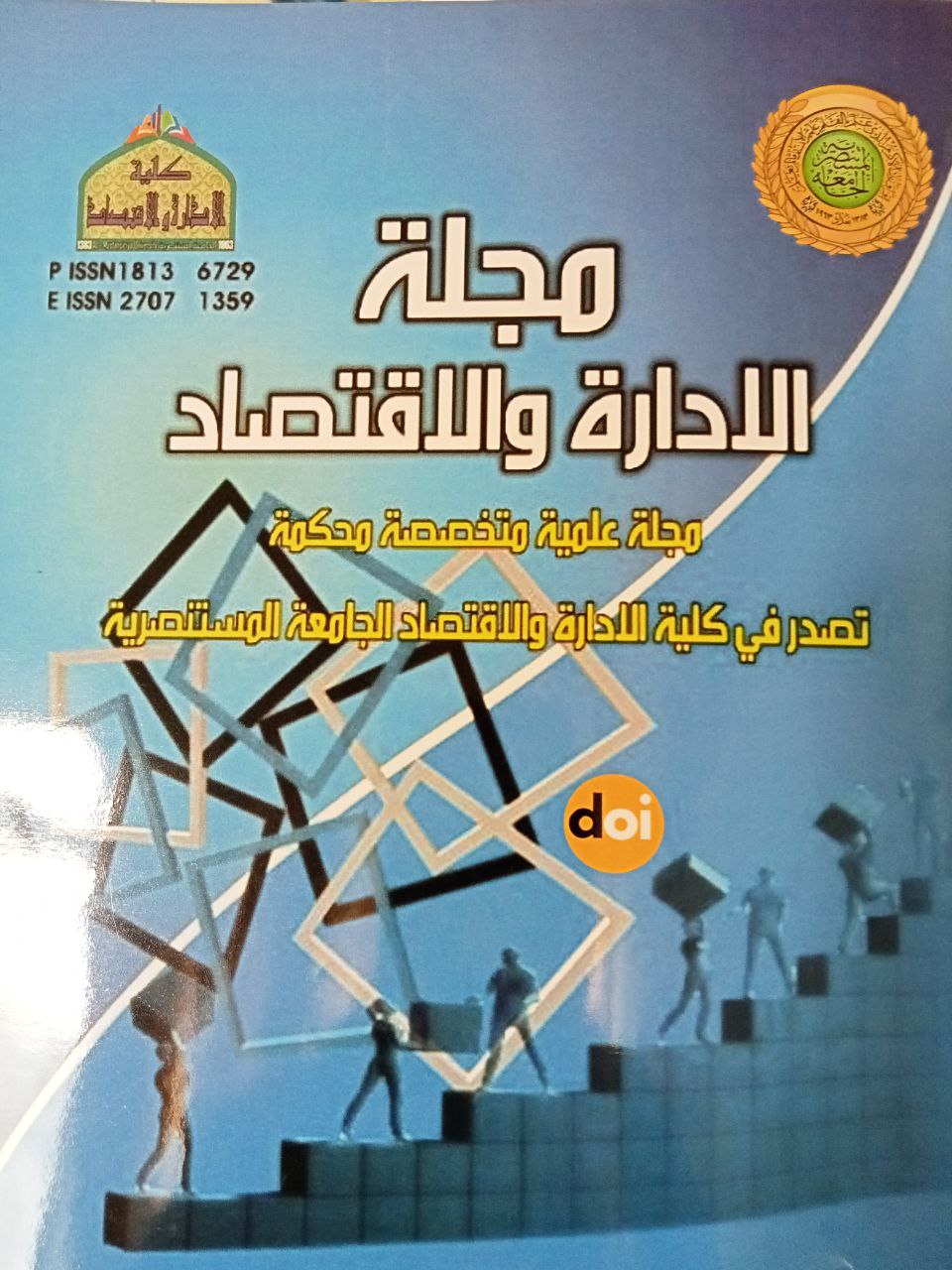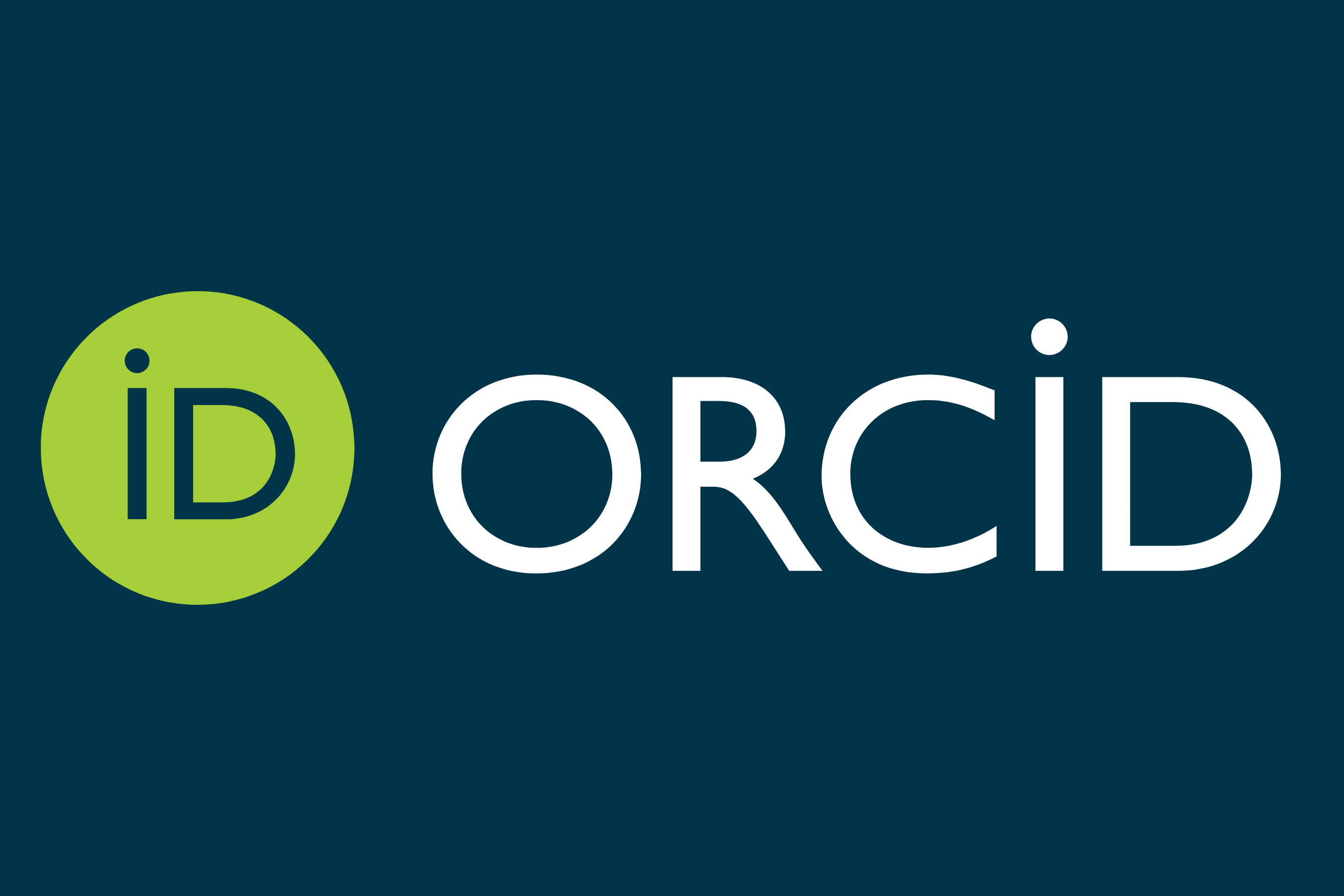"Impact of Knowledge Capabilities in achieving BLUE OCEAN STRATEGY (BOS)/ An exploratory study in Baghdad Soft Drinks Company"
DOI:
https://doi.org/10.31272/jae.i127.96Keywords:
knowledge capabilities, blue ocean strategyAbstract
Knowledge capabilities are an important approach for companies, due to the rapid changes in the external environment and the intensity of competition. Therefore, the value of the current capabilities in the company will quickly fade away, leading to a lack of competitiveness. It is necessary for companies to focus on developing their knowledge capabilities continuously to achieve grow1`th and survival in the market. This research aims to test the effect and role of knowledge abilities to achieve the blue ocean strategy. The questionnaire was used as a tool to collect data that was distributed. The sample of research, represented by managers of department officials and divisions, totaling 32 individuals in Baghdad Soft Drinks Company. The statistical program SPSS Issue 23 was used to analyze the results of the research, and several results were reached, including the presence of a moral correlation and an effect between cognitive abilities and the blue ocean strategy. One of the most important research recommendations is to increase the company's interest in cultural capabilities and to be directed towards continuous innovation in order to achieve growth and exit from red oceans and competitors, and that enhancing cognitive capabilities and understanding the impact of organizational culture will enhance the company's response to environmental complexities.
Downloads
References
1. Au. Angela,& Tucker, Jan "BLUE OCEAN STRATEGY FOR MICROENTERPRISES" International Journal of Information, Business and Management, Vol. 10, No.2, 2018.
2. ALBAYRAKaa†, Gamze & BEYBURab Mustafa," In investigation on the implementation of Blue Ocean strategy in participation bank located in Turkey", Journal of EconomicsBibliography, Volume 5 September 2018 Issue
3. Alghamdi, A. A. (2016). Market Knowledge, Blue Ocean Strategy, and Competitive Advantage (Direct and Indirect Relationships and Impact). Universal Journal of Management, 4(4), 141–160. https://doi.org/10.13189/ujm.2016.040401 DOI: https://doi.org/10.13189/ujm.2016.040401
4. Attia, A., & Salama, I. (2018). Knowledge management capability and supply chain management practices in the Saudi food industry. Business Process Management Journal, 24(2), 459–477. https://doi.org/10.1108/BPMJ-01-2017-0001 DOI: https://doi.org/10.1108/BPMJ-01-2017-0001
5. Bagheri, R., Eslami, S. P., Yarjanli, M., & Ghafoorifard, N. (2013). Factors Affecting the Implementation of the Blue Ocean Strategy A Case Study of Medicom Production Manufacturing Company. Australian Journal of Basic and Applied Sciences, 7(4), 213–222.
6. BEJINARU, R. (2017). Dynamic Capabilities of Universities in the Knowledge Economy. Management Dynamics in the Knowledge Economy, 5(4), 577–595. https://doi.org/10.25019/mdke/5.4.07 DOI: https://doi.org/10.25019/MDKE/5.4.07
7. Chen, L., Manley, K., & Lewis, J. (2012). The learning capability of construction organisations engaged in collaborative contracting Literature Review. September.
8. Dawson, R. (2000). Knowledge capabilities as the focus of organisational development and strategy. Journal of Knowledge Management, 4(4), 320–327. https://doi.org/10.1108/13673270010379876 DOI: https://doi.org/10.1108/13673270010379876
9. Dvorak, J., & Razova, I. (2018). Empirical Validation of Blue Ocean Strategy Sustainability in an International Environment. Foundations of Management, 10(1), 143–162. https://doi.org/10.2478/fman-2018-0012
10. Ellinger, A. E., Naidoo, J., Ellinger, A. D., Filips, K., & Herrin, G. D. (2020). Applying blue ocean strategy to hire and assimilate workers with disabilities into distribution centers. Business Horizons, 63(3), 339–350. https://doi.org/10.1016/j.bushor.2020.01.009
11. Evans, J. M., Brown, A., & Baker, G. R. (2017). Organizational knowledge and capabilities in healthcare: Deconstructing and integrating diverse perspectives. SAGE Open Medicine, 5, 205031211771265. https://doi.org/10.1177/2050312117712655 DOI: https://doi.org/10.1177/2050312117712655
12. Faccin, K., Balestrin, A., Volkmer Martins, B., & Bitencourt, C. C. (2019). Knowledge-based dynamic capabilities: a joint R&D project in the French semiconductor industry. Journal of Knowledge Management, 23(3), 439–465. https://doi.org/10.1108/JKM-04-2018-0233
13. Gomes, G., & Wojahn, R. M. (2017). Revista de Administração Organizational learning capability , innovation and performance : study in small and medium-sized enterprises ( SMES ). Revista de Administração, 52(2), 163–175. https://doi.org/10.1016/j.rausp.2016.12.003 DOI: https://doi.org/10.1016/j.rausp.2016.12.003
14. Gündüz, Ş. (2018). Preventing blue ocean from turning into red ocean: A case study of a room escape game. Journal of Human Sciences, 15(1), 1. https://doi.org/10.14687/jhs.v15i1.5140 DOI: https://doi.org/10.14687/jhs.v15i1.5140
15. Heijden, K. van der.,( 2006). "Scénáře: umění strategické konverzace = Scenarios_: the art of strategic conversation ",(John Wiley and Sons). Praha: ASPI.
16. Khaksar, S. M. S., Chu, M. T., Rozario, S., & Slade, B. (2020). Knowledge-based dynamic capabilities and knowledge worker productivity in professional service firms The moderating role of organisational culture. Knowledge Management Research and Practice, 00(00), 1–18. https://doi.org/10.1080/14778238.2020.1794992
17. Lauer, T. (2019). Generic Strategies, Outpacing and Blue Ocean - Discussing the Validity of Three Strategic Management Theories Using Case Studies from Airlines and Grocery Retail. Theory, Methodology, Practice, 2019(1), 57–66. https://doi.org/10.18096/tmp.2019.01.06
18. Leih, S., & Teece, D. (2016). David Teece-Entrepreneurial university 2016. 30(2), 182–210.
19. Ning, Y., Fan, Z. P., & Feng, B. (2006). Knowledge capability: A definition and research model. Lecture Notes in Computer Science (Including Subseries Lecture Notes in Artificial Intelligence and Lecture Notes in Bioinformatics), 4092 LNAI, 330–340. https://doi.org/10.1007/11811220_28 DOI: https://doi.org/10.1007/11811220_28
20. Paliwal, M., & Singh, A. (2020). Fintech at Bottom of the Pyramid : Blue Ocean Strategies for Banks. XII(Iii), 2784–2791.
21. Pandey, S. C., & Dutta, A. (2013). Role of knowledge infrastructure capabilities in knowledge management. Journal of Knowledge Management, 17(3), 435–453. https://doi.org/10.1108/JKM-11-2012-0365 DOI: https://doi.org/10.1108/JKM-11-2012-0365
22. Priilaid, D., Ballantyne, R., & Packer, J. (2020). A “blue ocean” strategy for developing visitor wine experiences: Unlocking value in the Cape region tourism market. Journal of Hospitality and Tourism Management, 43(May 2019), 91–99. https://doi.org/10.1016/j.jhtm.2020.01.009
23. Rahman, M. H., & Choudhury, S. (2019). The Influence of Blue Ocean Strategy on Organizational Performance. Global Disclosure of Economics and Business, 8(2), 91–104. https://doi.org/10.18034/gdeb.v8i2.101
24. Shafiq, M., Tasmin, R., Takala, J., Qureshi, M. I., & Rashid, M. (2017). Relationship Of Blue Ocean Strategy And Innovation Perforamance, An Emperical Study. City University Research Journal, 26(2), 74–80. http://www.emeraldinsight.com/doi/10.1108/02756660510608521
25. Shafiq, Muhammad, Tasmin, R., Takala, J., Qureshi, M. I., & Rashid, M. (2018). Mediating role of open innovation between the relationship of Blue ocean strategy and innovation performance, a study of Malaysian industry. International Journal of Engineering and Technology(UAE), 7(2.29 Special Issue 29), 1076–1081. https://doi.org/10.14419/ijet.v7i2.29.14316
26. Sitinjak, M. F., Pramawijaya, K., & Gunawan, A. (2018). Icanstudiolive use of blue ocean marketing strategy for value differentiation. Pertanika Journal of Social Sciences and Humanities, 26(T), 203–214.
27. Suci, R. P., Mas, N., Widyatna, B. S., Ekonomi, F., & Widyagama, U. (2020). Mengkaji kemungkinan penerapan blue ocean strategy di uniccrab seafood culinary malang Examining the possibility of applying the blue ocean strategy in the unfortunate seafood culinary in malang. 22(1), 55–60.
28. Vieira, E. R. M., & Ferreira, J. J. (2018). Strategic framework of fitness clubs based on quality dimensions: the blue ocean strategy approach. Total Quality Management and Business Excellence, 29(13–14), 1648–1667. https://doi.org/10.1080/14783363.2017.1290523 DOI: https://doi.org/10.1080/14783363.2017.1290523
29. Yang, C., & Chen, L. C. (2007). Can organizational knowledge capabilities affect knowledge sharing behavior? Journal of Information Science, 33(1), 95–109. https://doi.org/10.1177/0165551506068135 DOI: https://doi.org/10.1177/0165551506068135
30. Yang, Y. I. F. (2008). The roles of human resources, information technology, and marketing knowledge capabilities in performance: An extension of the resource-based theory perspective. Social Behavior and Personality, 36(9), 1269–1282. https://doi.org/10.2224/sbp.2008.36.9.1269 DOI: https://doi.org/10.2224/sbp.2008.36.9.1269
31. Yee, K. P., & Eze, U. C. (2012). The influence of quality, marketing, and knowledge capabilities in business competitiveness. International Journal of Innovation and Learning, 11(3), 288–307. https://doi.org/10.1504/IJIL.2012.046067 DOI: https://doi.org/10.1504/IJIL.2012.046067

Downloads
Published
Issue
Section
License
Copyright (c) 2021 Journal of Administration and Economics

This work is licensed under a Creative Commons Attribution 4.0 International License.
The journal of Administration & Economics is an open- access journal that all contents are free of charge. Articles of this journal are licensed under the terms of the Creative Commons Attribution International Public License CC-BY 4.0 (https://creativecommons.org/licenses/by/4.0/legalcode) that licensees are unrestrictly allowedto search, download, share, distribute, print, or link to the full text of the articles, crawl them for indexing and reproduce any medium of the articles provided that they give the author(s) proper credits (citation). The journal allows the author(s) to retain the copyright of their published article.
Creative Commons-Attribution (BY)









